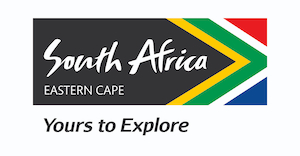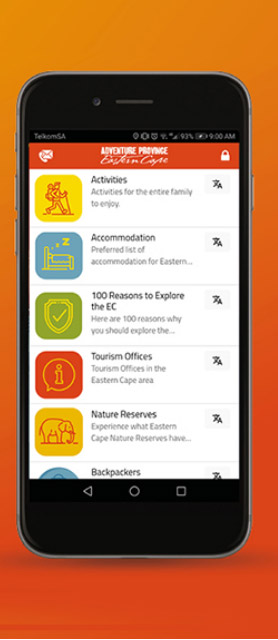UNION BUILDINGS, TSHWANE
23 MARCH 2020
My fellow South Africans,
It is a week since we declared the coronavirus pandemic a national disaster and announced a package of extraordinary measures to combat this grave public health emergency.
The response of the South African people to this crisis has been remarkable.
Millions of our people have understood the gravity of the situation.
Most South Africans have accepted the restrictions that have been placed on their lives and have taken responsibility for changing their behaviour.
I am heartened that every sector of society has been mobilised and has accepted the role that it needs to play.
From religious leaders to sporting associations, from political parties to business people, from trade unions to traditional leaders, from NGOs to public servants, every part of our society has come forward to confront this challenge.
Many have had to make difficult choices and sacrifices, but all have been determined that these choices and sacrifices are absolutely necessary if our country is to emerge stronger from this disaster.
Over the past week, South Africans have demonstrated their determination, their sense of purpose, their sense of community and their sense of responsibility.
For this, we salute you and we thank you.
On behalf of the nation, I would also like to thank the health workers, our doctors, nurses and paramedics who are on the frontline of the pandemic, our teachers, border officials, police and traffic officers and all the other people who have been leading our response.
Since the national state of disaster was declared, we have put in place a range of regulations and directives.
These regulations have restricted international travel, prohibited gatherings of more than 100 people, closed schools and other educational institutions and restricted the sale of alcohol after 6pm.
We reiterate that the most effective way to prevent infection is through basic changes in individual behaviour and hygiene.
We are therefore once more calling on everyone to:
- wash hands frequently with hand sanitisers or soap and water for at least 20 seconds;
- cover our nose and mouth when coughing and sneezing with tissue or flexed elbow;
- avoid close contact with anyone with cold or flu-like symptoms.
Everyone must do everything within their means to avoid contact with other people.
Staying at home, avoiding public places and cancelling all social activities is the preferred best defence against the virus.
Over the past week, as we have been implementing these measures, the global crisis has deepened.
When I addressed the nation last Sunday there were over 160,000 confirmed COVID-19 cases worldwide.
Today, there are over 340,000 confirmed cases across the world.
In South Africa, the number of confirmed cases has increased six-fold in just eight days from 61 cases to 402 cases.
This number will continue to rise.
It is clear from the development of the disease in other countries and from our own modelling that immediate, swift and extraordinary action is required if we are to prevent a human catastrophe of enormous proportions in our country.
Our fundamental task at this moment is to contain the spread of the disease.
I am concerned that a rapid rise in infections will stretch our health services beyond what we can manage and many people will not be able to access the care they need.
We must therefore do everything within our means to reduce the overall number of infections and to delay the spread of infection over a longer period – what is known as flattening the curve of infections.
It is essential that every person in this country adheres strictly – and without exception – to the regulations that have already been put in place and to the measures that I am going to announce this evening.
Our analysis of the progress of the epidemic informs us that we need to urgently and dramatically escalate our response.
The next few days are crucial.
Without decisive action, the number of people infected will rapidly increase from a few hundred to tens of thousands, and within a few weeks to hundreds of thousands.
This is extremely dangerous for a population like ours, with a large number of people with suppressed immunity because of HIV and TB, and high levels of poverty and malnutrition.
We have learnt a great deal from the experiences of other countries.
Those countries that have acted swiftly and dramatically have been far more effective in controlling the spread of the disease.
As a consequence, the National Coronavirus Command Council has decided to enforce a nation-wide lockdown for 21 days with effect from midnight on Thursday 26 March.
This is a decisive measure to save millions of South Africans from infection and save the lives of hundreds of thousands of people.
While this measure will have a considerable impact on people’s livelihoods, on the life of our society and on our economy, the human cost of delaying this action would be far, far greater.
The nation-wide lockdown will be enacted in terms of the Disaster Management Act and will entail the following:
- From midnight on Thursday 26 March until midnight on Thursday 16 April, all South Africans will have to stay at home.
- The categories of people who will be exempted from this lockdown are the following: health workers in the public and private sectors, emergency personnel, those in security services – such as the police, traffic officers, military medical personnel, soldiers – and other persons necessary for our response to the pandemic.
It will also include those involved in the production, distribution and supply of food and basic goods, essential banking services, the maintenance of power, water and telecommunications services, laboratory services, and the provision of medical and hygiene products. A full list of essential personnel will be published.
- Individuals will not be allowed to leave their homes except under strictly controlled circumstances, such as to seek medical care, buy food, medicine and other supplies or collect a social grant.
- Temporary shelters that meet the necessary hygiene standards will be identified for homeless people. Sites are also being identified for quarantine and self-isolation for people who cannot self-isolate at home.
- All shops and businesses will be closed, except for pharmacies, laboratories, banks, essential financial and payment services, including the JSE, supermarkets, petrol stations and health care providers.
Companies that are essential to the production and transportation of food, basic goods and medical supplies will remain open.
We will publish a full list of the categories of businesses that should remain open.
Companies whose operations require continuous processes such as furnaces, underground mine operations will be required to make arrangements for care and maintenance to avoid damage to their continuous operations.
Firms that are able to continue their operations remotely should do so.
- Provision will be made for essential transport services to continue, including transport for essential staff and for patients who need to be managed elsewhere.
The nation-wide lockdown is necessary to fundamentally disrupt the chain of transmission across society.
I have accordingly directed the South African National Defence Force be deployed to support the South African Police Service in ensuring that the measures we are announcing are implemented.
This nationwide lockdown will be accompanied by a public health management programme which will significantly increase screening, testing, contact tracing and medical management.
Community health teams will focus on expanding screening and testing where people live, focusing first on high density and high-risk areas.
To ensure that hospitals are not overwhelmed, a system will be put in place for ‘centralised patient management’ for severe cases and ‘decentralised primary care’ for mild cases.
Emergency water supplies – using water storage tanks, water tankers, boreholes and communal standpipes – are being provided to informal settlements and rural areas.
A number of additional measures will be implemented with immediate effect to strengthen prevention measures. Some of those measures are that:
- South African citizens and residents arriving from high-risk countries will automatically be placed under quarantine for 14 days.
- Non-South Africans arriving on flights from high-risk countries we prohibited a week ago will be turned back.
- International flights to Lanseria Airport will be temporarily suspended.
- International travellers who arrived in South Africa after 9 March 2020 from high-risk countries will be confined to their hotels until they have completed a 14-day period of quarantine.
Fellow South Africans,
Our country finds itself confronted not only by a virus that has infected more than a quarter of a million people across the globe, but also by the prospects of a very deep economic recession that will cause businesses to close and many people to lose their jobs.
Therefore, as we marshal our every resource and our every energy to fight this epidemic, working together with business, we are putting in place measures to mitigate the economic impact both of this disease and of our economic response to it.
We are today announcing a set of interventions that will help to cushion our society from these economic difficulties.
This is the first phase of the economic response, and further measures are under consideration and will be deployed as needed.
These interventions are quick and targeted.
Firstly, we are supporting the vulnerable.
- Following consultation with social partners, we have set up a Solidarity Fund, which South African businesses, organisations and individuals, and members of the international community, can contribute to.
The Fund will focus efforts to combat the spread of the virus, help us to track the spread, care for those who are ill and support those whose lives are disrupted.
The Fund will complement what we are doing in the public sector.
I am pleased to announce that this Fund will be chaired by Ms Gloria Serobe and the deputy Chairperson is Mr Adrian Enthoven.
The Fund has a website – www.solidarityfund.co.za – and you can begin to deposit monies into the account tonight.
The Fund will be administered by a reputable team of people, drawn from financial institutions, accounting firms and government.
It will fully account for every cent contributed and will publish the details on the website.
It will have a board of eminent South Africans to ensure proper governance.
To get things moving, Government is providing seed capital of R150 million and the private sector has already pledged to support this fund with financial contributions in the coming period.
We will be spending money to save lives and to support the economy.
In this regard, we must applaud the commitment made in this time of crisis by the Rupert and Oppenheimer families of R1 billion each to assist small businesses and their employees affected by the coronavirus pandemic.
- We are concerned that there are a number of businesses that are selling certain goods at excessively high prices. This cannot be allowed.
Regulations have been put in place to prohibit unjustified price hikes, to ensure shops maintain adequate stocks of basic goods and to prevent people from ‘panic buying’.
It is important for all South Africans to understand that the supply of goods remains continuous and supply chains remain intact.
Government has had discussions with manufacturers and distributors of basic necessities, who have indicated that there will be a continuous supply of these goods. There is therefore no need for stockpiling of any items.
- A safety net is being developed to support persons in the informal sector, where most businesses will suffer as a result of this shutdown. More details will be announced as soon as we have completed the work of assistance measures that will be put in place.
- To alleviate congestion at payment points, old age pensions and disability grants will be available for collection from 30 and 31 March 2020, while other categories of grants will be available for collection from 01 April 2020.
All channels for access will remain open, including ATMs, retail point of sale devices, Post Offices and cash pay points.
Secondly, we are going to support people whose livelihoods will be affected.
- We are in consultation on a proposal for a special dispensation for companies that are in distress because of COVID-19. Through this proposal employees will receive wage payment through the Temporary Employee Relief Scheme, which will enable companies to pay employees directly during this period and avoid retrenchment.
- Any employee who falls ill through exposure at their workplace will be paid through the Compensation Fund.
- Commercial banks have been exempted from provisions of the Competition Act to enable them to develop common approaches to debt relief and other necessary measures.
We have met with all the major banks and expect that most banks will put measures in place within the next few days.
- Many large companies that are currently closed have accepted their responsibility to pay workers affected. We call on larger businesses in particular to take care of their workers during this period.
- In the event that it becomes necessary, we will utilise the reserves within the UIF system to extend support to those workers in SMEs and other vulnerable firms who are faced with loss of income and whose companies are unable to provide support. Details of these will be made available within the next few days.
Thirdly, we are assisting businesses that may be in distress.
- Using the tax system, we will provide a tax subsidy of up to R500 per month for the next four months for those private sector employees earning below R6,500 under the Employment Tax Incentive. This will help over 4 million workers.
- The South African Revenue Service will also work towards accelerating the payment of employment tax incentive reimbursements from twice a year to monthly to get cash into the hands of compliant employers as soon as possible.
- Tax compliant businesses with a turnover of less than R50 million will be allowed to delay 20% of their pay-as-you-earn liabilities over the next four months and a portion of their provisional corporate income tax payments without penalties or interest over the next six months. This intervention is expected to assist over 75 000 small and medium-term enterprises.
- We are exploring the temporary reduction of employer and employee contributions to the Unemployment Insurance Fund and employer contributions to the Skill Development Fund.
- The Department of Small Business Development has made over R500 million available immediately to assist small and medium enterprises that are in distress through a simplified application process.
- The Industrial Development Corporation has put a package together with the Department of Trade, Industry and Competition of more than R3 billion for industrial funding to address the situation of vulnerable firms and to fast-track financing for companies critical to our efforts to fight the virus and its economic impact.
- The Department of Tourism has made an additional R200 million available to assist SMEs in the tourism and hospitality sector who are under particular stress due to the new travel restrictions.
I want to make it clear that we expect all South Africans to act in the interest of the South African nation and not in their own selfish interests.
We will therefore act very strongly against any attempts at corruption and profiteering from this crisis.
I have directed that special units of the NPA be put together to act immediately and arrest those against who we find evidence of corruption.
We will work with the judiciary to expedite cases against implicated persons and make sure the guilty go to jail.
South Africa has a safe, sound, well-regulated and resilient financial sector.
Since the global financial crisis, we have taken steps to strengthen the banking system, including increasing capital, improving liquidity and reducing leverage.
With a strong financial sector and deep and liquid domestic capital markets, we have the space to provide support to the real economy.
We can make sure money flows to firms and households.
We can ensure that our markets are efficient.
Last week, in line with its Constitutional mandate, the South African Reserve Bank cut the repo rate by 100 basis point. This will provide relief to consumers and businesses.
The South African Reserve Bank has also proactively provided additional liquidity to the financial system.
The Governor has assured me that the Bank is ready to do ‘whatever it takes’ to ensure the financial sector operates well during this pandemic.
The banking system will remain open, the JSE will continue to function, the national payment system will continue to operate and the Reserve Bank and the commercial banks will ensure that bank notes and coins remain available.
The action we are taking now will have lasting economic costs.
But we are convinced that the cost of not acting now would be far greater.
We will prioritise the lives and livelihoods of our people above all else, and will use all of the measures that are within our power to protect them from the economic consequences of this pandemic.
In the days, weeks and months ahead our resolve, our resourcefulness and our unity as a nation will be tested as never before.
I call on all of us, one and all, to play our part.
To be courageous, to be patient, and above all, to show compassion.
Let us never despair.
For we are a nation at one, and we will surely prevail.
May God protect our people.
Nkosi Sikelel’ iAfrika. Morena boloka setjhaba sa heso.
God seën Suid-Afrika. God bless South Africa.
Mudzimu fhatutshedza Afurika. Hosi katekisa Afrika.
I thank you.










